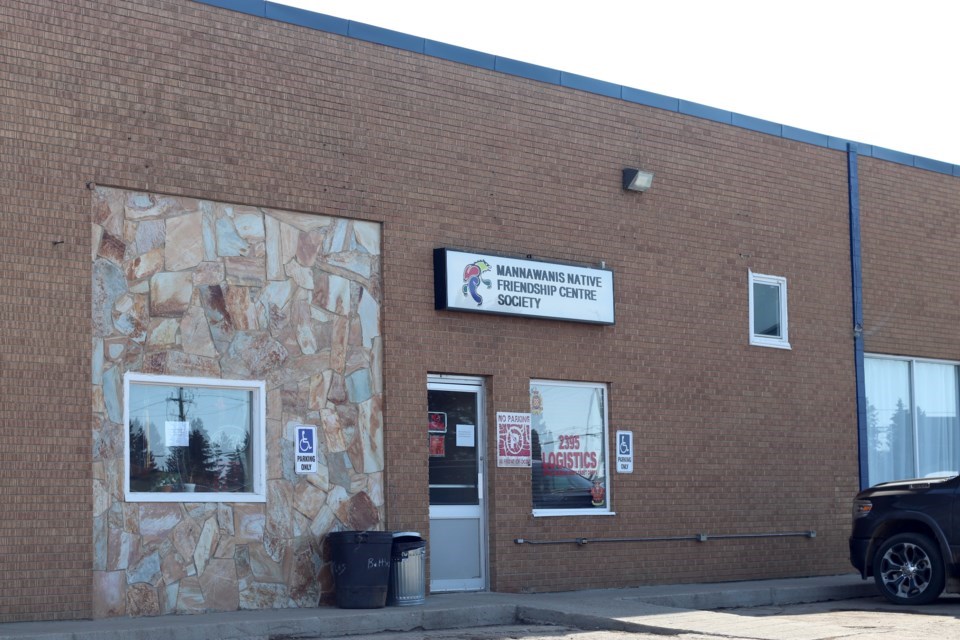ST. PAUL – The Mannawanis Native Friendship Centre (MNFC) held an informal meeting with residents on Oct. 5 to discuss concerns about a transitional housing project it hopes to establish within the Town of St. Paul.
Hinano Rosa, executive director at the MNFC, told residents the transitional house is not a drug rehabilitation centre, but instead is a place where participants of a transitional project will eat and sleep.
Participants of the project will be individuals coming out of mental health programs, for example, and the project programming is aimed at helping those individuals move into independence. Programming will take place at the MNFC, not at the house itself.
Programs offered will include providing employment skills, group sessions, counselling, and teaching basic life skills. Partnering agencies will work alongside the MNFC to offer the programming.
According to Rosa, Alberta Health Services (AHS) approached the MNFC last year about the project, hoping to do it in St. Paul. Rosa said he felt grateful and expressed his eagerness to pursue and begin working on the project.
The project came to a “screeching halt” due to zoning issues, said Rosa to the residents during the open house, last week. The location of the proposed transition house that would be used for the facility is located at 5130-45 Avenue, in a residential area that is not currently zoned for a supportive living facility.
The rezoning process will require input from neighbouring residents.
“At this point... this [location] is the only option we have,” said Rosa. If the rezoning fails, “the project will leave the Town of St. Paul,” he said, adding the project is a good opportunity for the community.
The other option that has been discussed is the location of a vacated youth home, but the location is too “expensive” for MNFC to afford, said Rosa. That house is priced at $1.4 million.
Rosa said he is confident the program will be successful, noting the strict criteria and the referral system required for a person to be able to participate in the program. Participants need to be sober to take part.
“We don’t want to set up a babysitting service,” said Rosa. So, for example, one requirement involves participants not being under heavy medication.
Many people may not be able to get approved due to the strict nature of the program. “People already need to have the ability to move into independence,” Rosa explained.
The transition house will be staffed 24/7 for management and security.
“Agencies working with us are just waiting for us to be ready,” said Rosa.
The only days without programming will be Saturdays and Sundays, and “We hope to create a schedule wherein they’re not so much at the house,” explained Rosa. One example would be encouraging participants of the program to visit their family on weekends.
Pierre Lamoureux, a local lawyer and resident who is also involved with reconciliation groups in St. Paul, was present during the meeting. He asked if the transition house is exclusively for Indigenous people.
Rosa responded that, “It’s across the board. It’s colourblind.” People from across Alberta will be able to apply for the program.
“But we still have the discretion of making the final decision on who enters the transition house,” said Rosa.
One resident in attendance raised concern about the amount of traffic the transition house is going to create, noting while participants may not be allowed access to their own vehicle while in the program, the rotating staff would still need somewhere to park their vehicles.
“We have young children on that street,” said the resident.
Larry Lambert, a board member of MNFC, acknowledged the concerns of traffic and increased noise, stating they will find a solution as they move forward. “If anybody came up and blew the horn by my house, I’d be awfully upset too,” said Lambert.
Lambert also asked the residents to write a letter noting their concerns so they can be brought before Town council, as part of the rezoning proposal process. This will allow for concerns to be addressed.
“If we need to build a fence... that’s what we’ll do. If they need to walk to and fro, that’s what they’ll do,” said Lambert, adding, “So, let us know what we need to do to make this work."
Aline Brousseau, director of planning and legislative services with the Town of St. Paul, said the open house is only the first part of the public engagement process and there will be more to come.
“No bylaw readings have been considered... it’s basically just gathering the information and presenting it all back to Town [council],” she said, thus the importance of gathering letters of concerns from residents, to “see if there’s a way to address those concerns.”
Once the proposal goes to the actual bylaw process, Brousseau said there will be a formal public hearing. It could take one to two months and will depend on how quickly the relevant information to the rezoning proposal is gathered.
Written comments regarding the proposed supportive living facility can be sent by email to [email protected] by Oct. 12.
RELATED STORY - Mannawanis Native Friendship Centre pursuing transitional housing project



